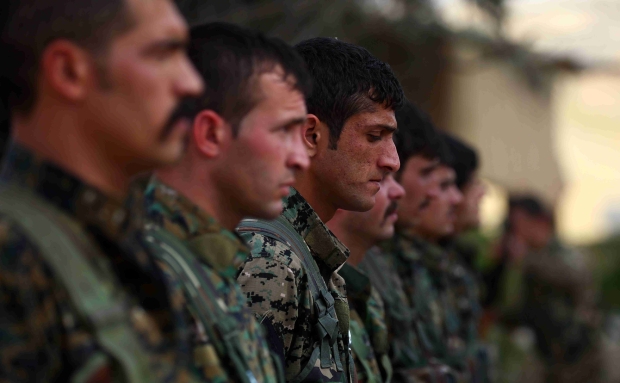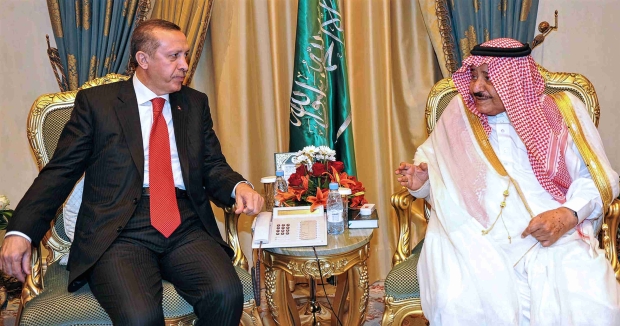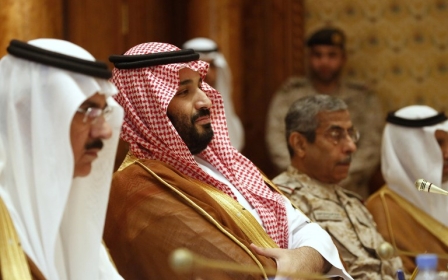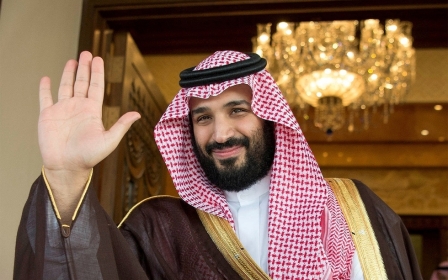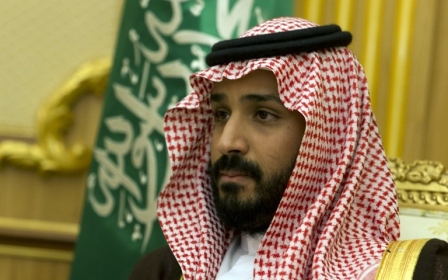ANALYSIS: Bin Salman's rise strains Turkey-Qatar alliance
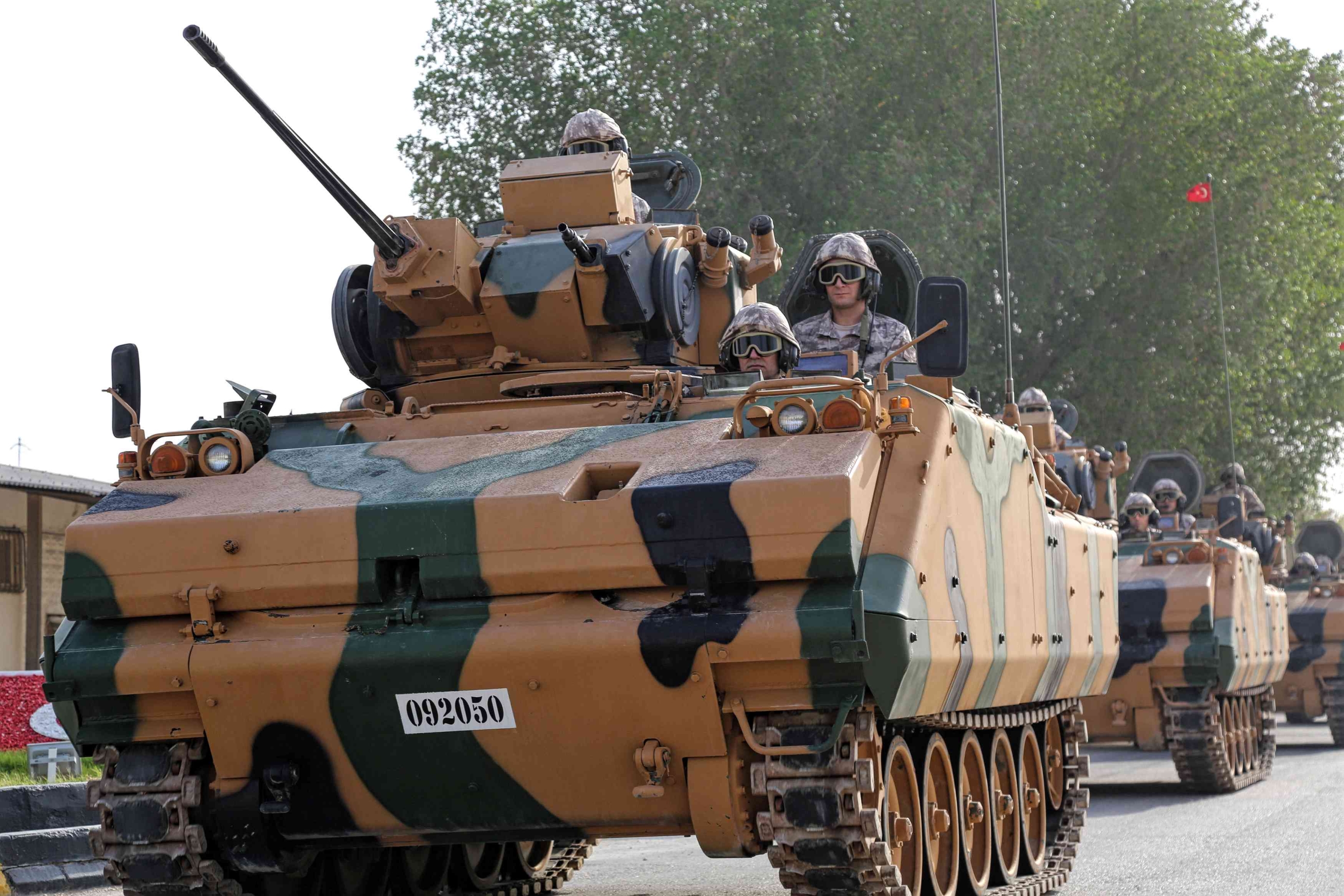
ISTANBUL, Turkey – Ankara has been trying to woo Mohammed bin Salman, the new Saudi crown prince, for some time. The timing of his appointment amid the most serious Arab crisis for decades means Turkey now faces a delicate balancing act if it wants to maintain cordial relations with the region's most dominant and influential power, according to observers of Gulf-Turkey ties.
At the same time, analysts don't see Turkey's close links with the now side-lined Mohammed bin Nayef as posing an obstacle to future ties.
"The appointment of Mohammed Bin Salman doesn't mean a bad period for Turkish-Saudi ties, but Ankara will have to make some painful concessions, particularly on the position it has adopted over Qatar," a source close to the Turkish government told Middle East Eye.
Ankara will have to make some painful concessions, particularly on the position it has adopted over Qatar
- Turkish government source
On 4 June, a Saudi-led group of nations - including Egypt, the United Arab Emirates and Bahrain - broke ties and imposed sanctions with Qatar, accusing it of supporting terrorism and courting Iran. Doha has denied the allegations.
According to the source, the Turkish government followed a balanced policy in the Gulf until the Qatar crisis. But on this occasion, President Recep Tayyip Erdogan ignored the advice he was offered in Ankara, listened to the media and openly supported Doha. This now needs to be addressed - and swiftly.
Analyst: Turkey needs to take clearer position
Also at the heart of the matter is Doha's appreciation, if not support, for popular Islamist movements in the region, including the Muslim Brotherhood and Hamas in Gaza.
Turkey's decision to back Qatar while calling for a resolution of the crisis was an easy one to make. Both countries backed the same popular Islamist movements that came to the fore during the Arab Spring in 2011. For Ankara, Hamas and the Muslim Brotherhood represent democratically-elected governments which have been subjected to anti-democratic actions.
Last week, an unidentified number of Turkish military armoured vehicles arrived in Qatar to augment the 90 Turkish soldiers already stationed there. Turkey was also quick to airlift tonnes of food to the country, whose land and air routes have been cut off.
But with the rise to power of the hawkish bin Salman, Turkey might be forced to take an even clearer position, one way or another.
The Saudi-led military operation against Yemen and the campaign against Qatar are both believed to be bin Salman projects.
Of particular concern to Ankara might be Turkish media reports that the Saudis are threatening to support Kurdish groups in Syria if Ankara continues to back Qatar.
Turkey was quick to airlift tonnes of foodstuff to Qatar, whose land and air routes have been cut off
Muhammed Zahid Gul, a journalist who specialises in Turkey-Saudi relations, told MEE that Ankara will need to adjust its positions if it wants continued good ties with the kingdom.
"At a private meeting with a few journalists in Riyadh a few months back, Mohammed bin Salman made clear that his biggest concerns are political Islam and the Muslim Brotherhood and those who support them," said Gul.
"The Turkish government will need to recognise this sensitivity if they want to stay in Bin Salman's good books."
Bin Salman and his ideology
'Bin Salman will have to switch from tactical to strategical thinking, and will as a result, have to curb being driven by his ideology.'
- Zekeriya Kursun, Fatih Sultan Mehmet University
It is believed that bin Nayef was sought out by the Turks and played a key role in smoothing relations between Ankara and Riyadh after King Salman took the throne.
"Mohammad bin Nayef has been around for a long time," said Gul. "He has been the go-to man on regional security matters for everyone since 9/11. Not just for Turkey but for everyone. This in no way means Turkey backed one against the other."
The source close to the government said. "Over the last 18 months the Turkish presidency has extended multiple invitations to bin Salman to visit. He hasn't accepted any yet. It was clear to Turkey as well as to everyone else that Salman was the rising power so Ankara made sure that any delegation visiting Nayef also visited Salman."
'Erdogan could have set off on a tour of all Gulf states to achieve a resolution. Which one of them would turn him down? That was a real wasted opportunity'
- Muhammed Zahid Gul, journalist, Turkey-Saudi relations
However, Gul said that the approach adopted by the Turkish leadership as regards the Gulf crisis will have to be rectified quickly.
"It is all well and good talking about neutrality and wanting to be a negotiator seeking a resolution to the crisis. But how can you be any of that if you go around saying ugly and untrue words like 'blockade'?"
"As current chair of the OIC (Organisation of Islamic Cooperation) and due to the personal regard he is held in, Recep Tayyip Erdogan could have set off on a tour of all Gulf states to achieve a resolution. Which one of them would turn him down? That was a real wasted opportunity."
Many analysts suggest that the Gulf crisis could potentially lead to regional chaos. Ankara will have to be very astute as to which positions it adopts in an area where it has only reengaged during the last 15 years.
"There is no crisis between Turkey and Saudi Arabia," said Gul. "Ankara just has to adopt a more neutral position now that Mohammed bin Salman has taken over as crown prince."
New MEE newsletter: Jerusalem Dispatch
Sign up to get the latest insights and analysis on Israel-Palestine, alongside Turkey Unpacked and other MEE newsletters
Middle East Eye delivers independent and unrivalled coverage and analysis of the Middle East, North Africa and beyond. To learn more about republishing this content and the associated fees, please fill out this form. More about MEE can be found here.


